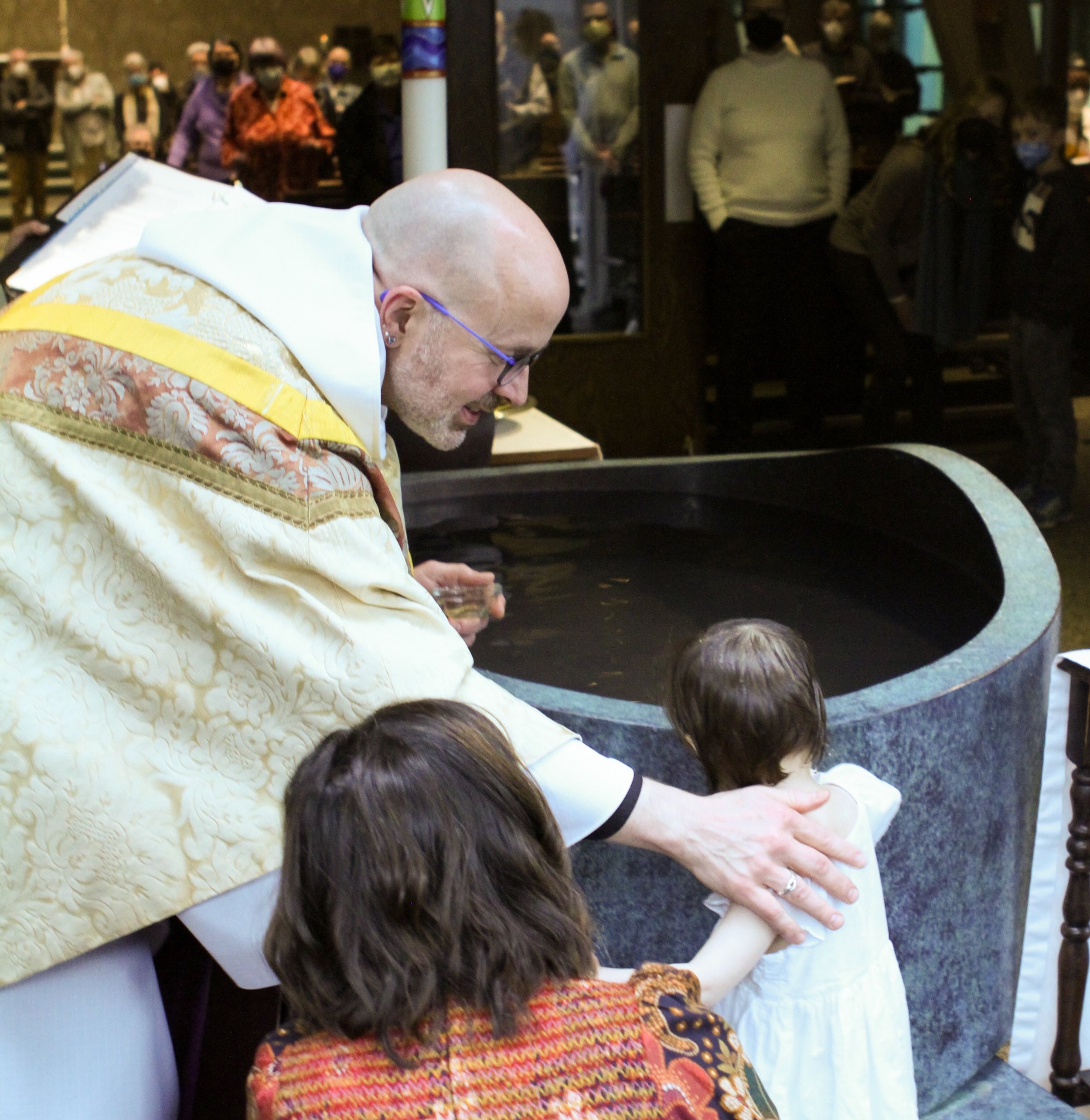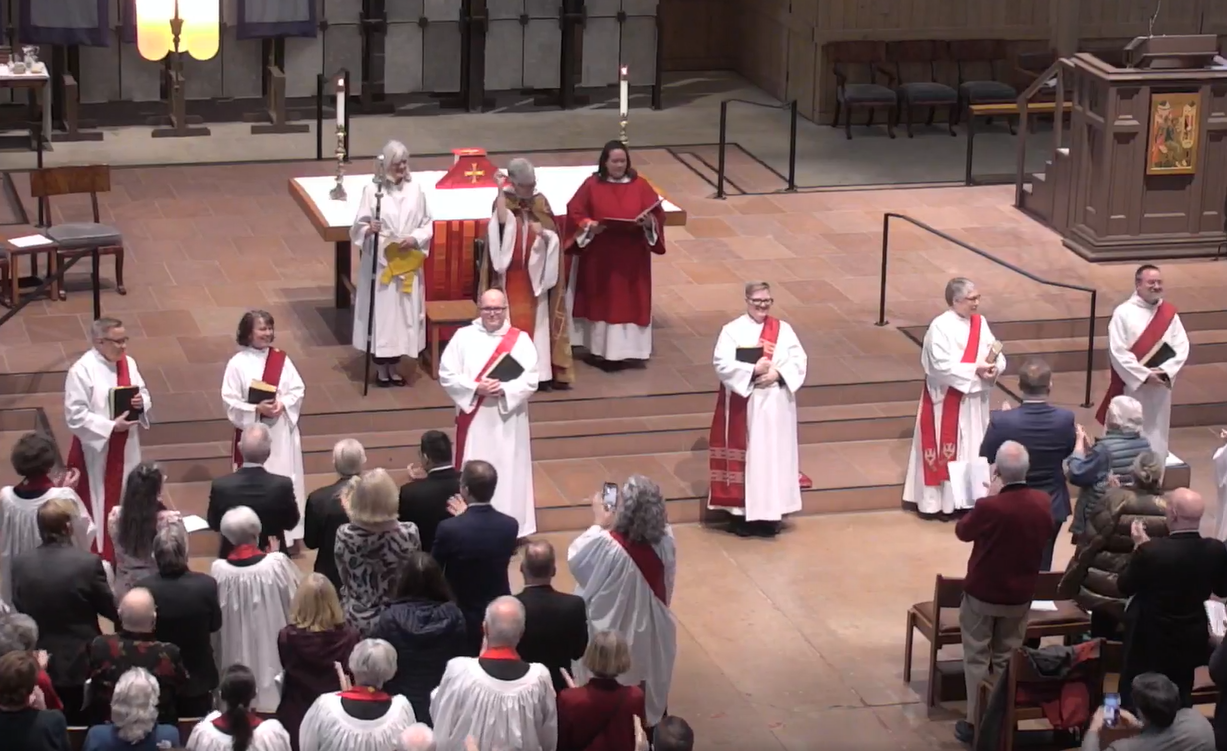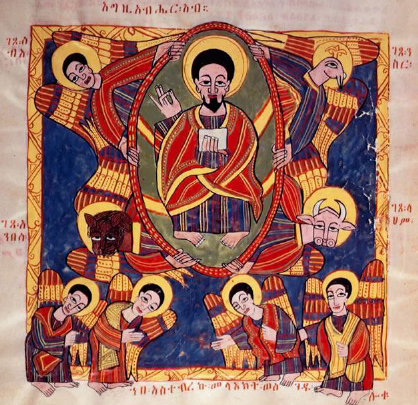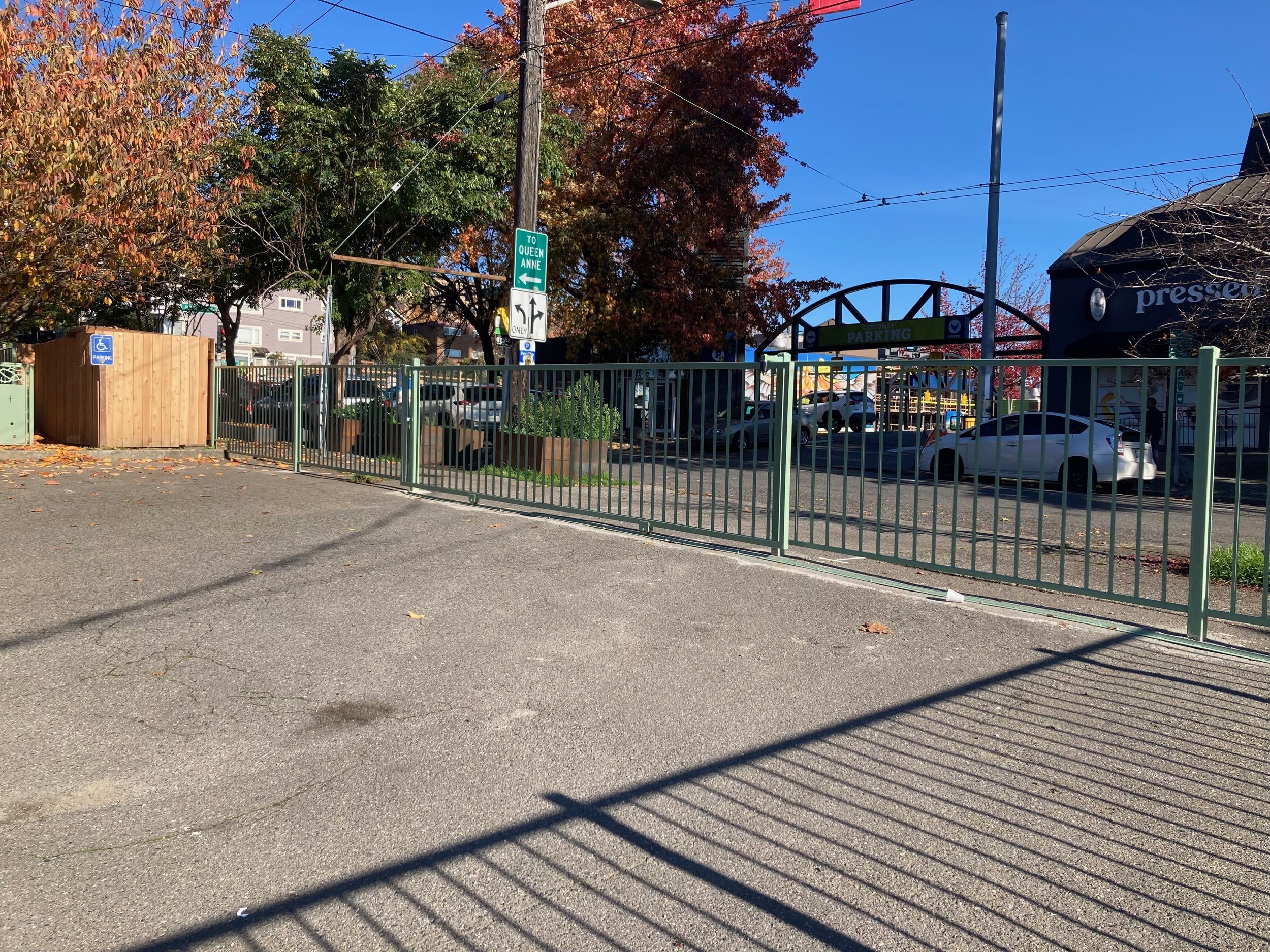Preached on the Fourth Sunday in Lent (Year B), March 10, 2024, at St. Paul’s Episcopal Church, Seattle, Washington by The Reverend Stephen Crippen.
Numbers 21:4-9
Psalm 107:1-3, 17-22
Ephesians 2:1-10
John 3:14-21
Monument of the bronze serpent erected by Moses, Mount Nebo, Jordan.
Look up, and see. Raise your eyes and look at the cross, at Jesus on that cross. Jesus rises above us, in glory. Lift your head. Feast your eyes.
Even for those of us who struggle to see with our physical eyes, or see only in ways other than physical, we are a visual species. “I see,” you say, as you finally understand a complicated point. “I feel seen,” you say, when you experience another person truly empathizing with you. “Why can’t you see that?!” you shout to your friend, who has failed to understand your good motive, or your sensible solution.
We humans imagine (imagine is a visual word). We see.
When Mark the evangelist tells us their version of the Good News, their portrayal of Jesus the Crucified and Risen One, Mark takes pains to focus on the centurion seeing Jesus hanging dead on the cross, as Jesus does here in this room, in this sculpture rising above us, high enough for all to see. The centurion sees Jesus on the cross, and only then does he grasp the truth that almost no one in Mark’s Gospel has fully comprehended: the centurion says, “Truly this man was God’s Son.” He sees, and in seeing, he understands.
Don’t miss Mark’s point here: we can’t understand Jesus, who he is, why he matters, until we see him giving away his whole life in love, on the cross.
But John the evangelist expands on this idea. He riffs brilliantly and vividly on this image. (“Brilliantly… vividly…” Those are adverbs related to vision, to seeing…) Again, in Mark, the full identity of Jesus is revealed only when he dies on the cross. But in John, the identity of Jesus is revealed in his death, resurrection, ascension, and giving of the Spirit — and all of those things happen on the cross. In John’s telling, the cross soars high, so high that it looms over all creation, so high that Jesus does not just die on that cross, he also rises to life, and ascends, and gives us his Spirit. Now, John does give us some post-Resurrection appearances of Jesus — some of our most powerful and provocative Resurrection stories! — but Jesus in John is already rising on the cross. He knows what is happening to him, as he hangs there; he sees all ends, as he suffers; he knows that his death is but the beginning of his triumph and glory, even as life departs from his body.
And so Jesus himself, in John’s Good News, when he’s on the cross — that one, terrible, dazzling, glorious location where he dies, rises, ascends, and gives the Spirit — Jesus on the cross is everything we need and want to see. “Look!” Jesus invites us, just as he had done in an earlier scene in John’s Good News, the time when he said to his first followers, the blinkered disciples, “Come and see.”
“Look at me,” Jesus calls out.
Jesus invites us to look at him — to look at him on the cross — in his encounter with the befuddled, myopic Nicodemus, the scholar and leader who anxiously but eagerly seeks out Jesus under the cover of darkness — the darkness of fear, the darkness of spiritual blindness, the darkness of ignorance and confusion.
Jesus takes pains to explain, to the seeker Nicodemus but also to us, that he is all we need to see, as he rises high on the cross. Jesus draws on an ancient story to make his point. “Just as Moses lifted up the serpent in the wilderness,” Jesus says, “so must the Son of Man be lifted up.” Jesus is touching on a riveting narrative from the book of Numbers in the Torah, the story we just heard in our first reading. In that odd, mysterious, and dreadful story from the desert wilderness, Moses lifts up the serpent in the wilderness. He lifts it high — so that all the people will see.
And what do they see? They see the venomous, burning viper, the same snake that had bit them, injuring and sometimes killing them. Our best translation of the Hebrew calls the beast a “fire snake,” probably alluding to a historical memory of the burning pain a desert reptile had inflicted on the wandering tribe. But the word for “fire snake” is the same word as the word for the seraphim, one of the orders of heavenly angels. God is not being gentle in this story, in most stories. Even the angels are startling, upsetting, dreadful … even terrifying.
And even today, even now, millennia later, on the other end of history from this ancient memory, even today we hold on to this upsetting, awful image, this image of the snake on a pole. It forms the logo of the American Medical Association, and it’s on the shield of Blue Cross Blue Shield. It’s even etched into the glass of the medical bay on Star Trek, a show that imagines a distant, post-religion future. You have seen this symbol. We have kept it around. Why?
Well, when the snake-bitten desert nomads look frantically up at the copper snake hanging from its bronze pole, they are healed: they can see; they can understand. The text tells us they are healed from their physical ailment, but we are invited, as always, to explore the deeper meaning of the story. They are healed of their ignorance, cured of their low insight. Like the centurion centuries later — a military official on a brutal so-called “peacekeeping” mission in an occupied land at the edge of the empire — like the centurion, the Israelites finally see. They see their bitter complaint against God; their venomous, inflamed contempt for God’s blessings; their destructive, deathly resentments. They see all of this hanging above them, on a pole. And they finally understand.
This is a parable about insight. (Insight: another visual word.) They understand, finally, with great relief. Ah! they exclaim, as the truth finally dawns on them (dawn: a bright phenomenon that one sees: another visual metaphor). Ah! they exclaim, as the truth finally dawns on them. We see. We get it. We understand.
And so I wonder, and I invite you to wonder, what you see when you look up at this new pole, which is now a cross, and this new serpent, which is now the Christ, crucified, risen, ascended, and handing over his Spirit. What do you see? What do you understand?
I can tell you what I see.
I see our shared culpability, our shared responsibility for all that stings us in this hard wilderness of a world. I confess I see our wrongdoing first, before any of the happy things I might see on this cross, on this crucified Body. I see our guilt. The Church rightly comes in for rebuke about our long, sad history of guilting people, and so I rush to assure you that that’s not what I’m doing. I just know what I suspect you also know: we are caught up in the venomous bite of injustice. We sometimes tolerate it, whether we’re aware of that or not. But we also inflict it. You know that, right? It is a hard truth.
But I also see hopeful things when I gaze at that cross. I see Jesus pouring out his whole life in self-giving love, for us, for those in extreme need, for refugees, for victims of ignorance, for victims of war, for victims of climate destruction, for victims of despair. I see Jesus showing us the Way to pour ourselves out, too, for all of these same people, and for one another. I gaze at the cross and I see self-giving love.
But I see other good things. I see reconciliation; I see glory; I see the gift of the Spirit. In John’s Gospel, the crucified, rising, and ascending Jesus places his mother in the care of his dearest friend, and places his dearest friend in the care of his mother: we are meant to see in this conversation at the cross the formation of the Christian community. “Behold your mother,” Jesus says to his beloved friend. “Behold your child,” Jesus says to his mother. And so once again, yet again, Jesus is inviting us to see! “Behold,” Jesus says: “behold”— yet another visual word.
And so I see — when I gaze at this cross — I see Jesus looking at me, and saying to me, “Stephen, behold your congregation.” The crucified, rising, and ascending One, looking down to me from the cross, is inviting me to see you. And in seeing you, I am instructed by Jesus to love you, to care for you, to sometimes challenge you, to faithfully draw alongside you, even as you and I, all of us, are invited to see our neighbor, to love our neighbor, to care for and sometimes challenge our neighbor, to faithfully draw alongside our neighbor.
And that is the hope and glory of the cross, rising above us in a vision of splendid sacrifice and dazzling triumph. “Behold. Look. See,” Jesus says, shining gloriously, from the cross.
Do you, my beloved companion, do you see? Do you see Jesus on the cross, and through his eyes, do you see me? Do you see yourself? Do you see your own conflicted but good heart? Do you see your sins forgiven, the fire snake’s venom extracted, your hope restored? And do you see your neighbor, craving your embrace?
What do you see, when you gaze at this terrible sight, when you adore this vision?
I invite you to lift up your eyes, and look.





















